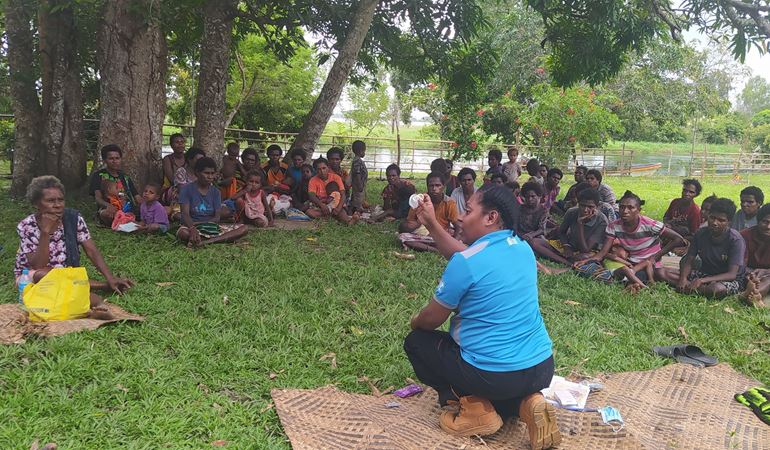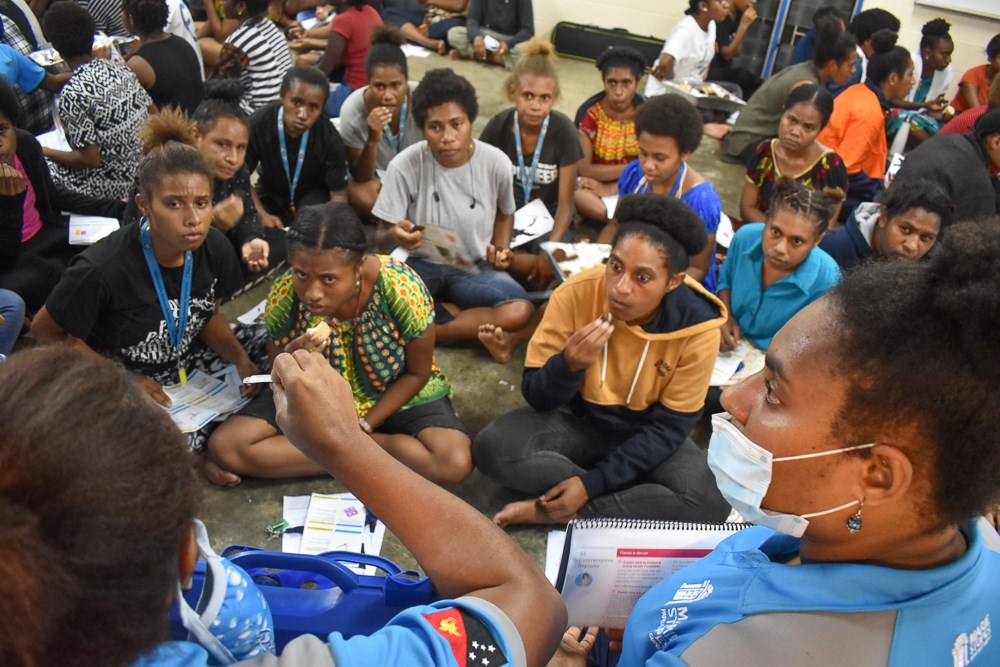About us
Providing reproductive health and family planning services across Papua New Guinea.

Marie Stopes Papua New Guinea transforms the lives of women and girls through the provision of sexual and reproductive health services.
Our work supports women, girls and men to make informed decisions about their reproductive health, including if and when they have children.
As part of the Marie Stopes International global partnership, we adhere to the rigorous quality and standards created by our parent organisation after more than 40 years of working in the industry. With some of the highest fertility rates in the Asia-Pacific region, Marie Stopes Papua New Guinea is working to increase contraceptive prevalence, and reduce unintended pregnancies and prevent maternal mortality in the region.
As a social business, we have a fee-for service model in our clinics, but also subsidise clients who cannot afford to pay, and provide free services for the most marginalised. Our preference is to never turn a client away.
Contraception can be transformational and at the most basic level contributes to the achievement of sexual and reproductive health rights, women’s rights and gender equality. The broader benefits are undeniable.
Contraceptive education, information and services for women and girls in developing countries can have significant health, societal and economic benefits for individuals, families, communities and countries. If a woman can access contraception she can make decisions about her future, help support her family and contribute to her community. If a girl has access to contraception, she may choose to stay in school, pursue higher education and be more likely to participate in the formal economy.
Working closely with the National Department of Health, Marie Stopes PNG aims to increase contraceptive prevalence and decrease maternal mortality in Papua New Guinea.
Providing contraception
134,000 clients used Marie Stopes contraception across the country in 2020.
Delivering services
A strong focus in all our work is making our services accessible to young people, 18% of the people we reached in the country in 2018 were under 25.
Outreach
Our Aerial Health Patrol outreach team in Western Provinces reaches remote communities accessible only by rural airstrips, delivering life-changing contraception.
The Marie Stopes approach
We are proud to be part of Marie Stopes International (MSI) who are dedicated to providing reproductive health and family planning services to the underserved populations worldwide.
Starting from a single clinic in London, the organisation has grown to become one of the world’s largest providers of high quality, affordable family planning services. MSI’s quality clinical standards and best practice services are shared globally, currently across 37 countries, and developed in partnership with in-country quality assurance teams. Providing a positive and empowering client experience is core to who we are, as MSI. We listen, design with, and are fully responsive to our clients and providers.
Marie Stopes International has been providing women with choice for 40 years, reaching over 100 million clients worldwide. We are proud to be a part of that journey!

Keeping our clients at the core of everything we do
We promise to offer our clients a warm, comfortable and reassuring experience from the moment they enter our doors.
Our Family Health Clinic provides a wide range of services, delivering excellence in clinical quality and family planning. This includes creating a calm and inviting environment and teams of professional and passionate people, who put our clients first.
We replicate our standards of excellence for clinical quality through everything we do, whether that’s our outreach teams, mobile tents, national youth hotline or the products we supply.
Wherever you see the Marie Stopes brand, you should always expect the best possible and affordable experience.
It’s our promise to provide the best possible and affordable care for every client who walks through our doors.
Learn more about our services
Find out more about the services we offer and their availability across Papa New Guinea.





